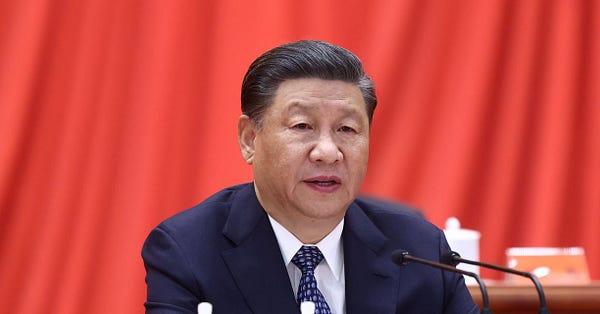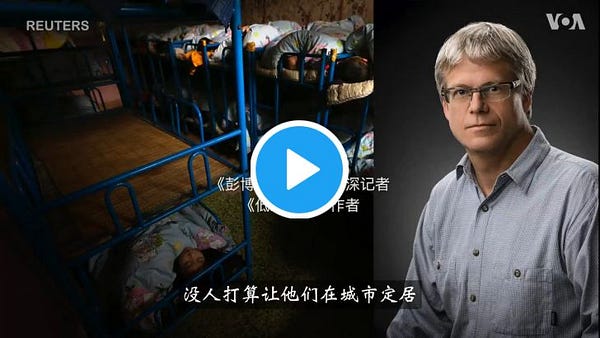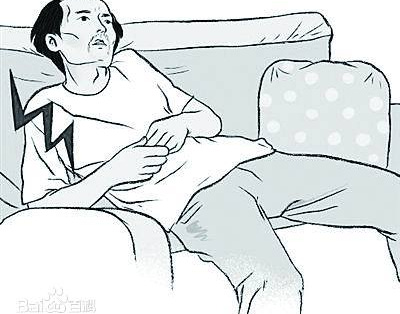Welcome to the 72nd edition of Trade War.
At the G7, the U.S., Europe and Japan debate how hawkish to be on China. And the U.S. Senate passes a $250 billion technology competitiveness bill aimed at Beijing.
China rushes out a new law to retaliate against sanctions on its companies and officials. And plans to merge schools in China spark rare student protests amidst a difficult job situation and the rise of the “Lying Flat” phenomenon.
Who are the China hawks at the G7?
As G7 leaders meet in Cornwall, England this weekend, the big issue is how strongly to respond to China’s push for global influence as well as its dismal human rights record including in Xinjiang, reports Bloomberg News.
While Joe Biden, Boris Johnson, Canada’s Justin Trudeau, and Japan's Yoshihide Suga all are pushing for a more hawkish approach, Angela Merkel, Emmanuel Macron, and Italy’s Mario Draghi are worried about the grouping being seen as anti-China.
Still, the degree to which all countries appear willing to take a tougher stance towards China marks this meeting from earlier ones, one European official told Bloomberg.
“The leaders agree on working together to respond to what they consider to be non-market economic practices by China, as well as speaking out on human rights abuses and forced labor in supply chains, including in Xinjiang, [a U.S.] official said.”

China winning in overseas presidential trips
Biden’s first trip overseas as president is being heralded as a step towards restoring U.S. diplomatic relations battered under the Trump administration. Still, a single overseas jaunt won’t match China’s barrage of presidential visits.
Data shows that over the last decade China overtook the U.S. in the quantity, duration, and breadth of presidential diplomacy, writes Eurasia Group’s Neil Thomas in a twitter thread.
While U.S. presidents previously traveled overseas far more than their Chinese counterparts, that changed after the 2009 global financial crisis.
“Travel by China’s president rose steadily and Xi Jinping averaged more foreign visits annually (14.3) than Obama (13.9) or Trump (12.3),” tweets Thomas.


$250 billion bill beefs up US tech, threatens China
The U.S. Senate has approved a sweeping $250 billion bill that aims to maintain American technological competitiveness in the face of a rising China, reports Reuters.
The bill that passed the Senate with bipartisan support, calls for major investments into U.S. technology including semiconductors. The bill that now goes to the House also threatens mandatory sanctions on Chinese entities involved in U.S. cyberattacks and intellectual property theft from American companies, and creates a review for export controls on products that facilitate human rights abuses.
“Assuming the House follows suit, this is the most consequential statement by Congress on China policy since its votes granting permanent MFN [Most-Favored-Nation trading status] for China in 2000 in advance of China joining the WTO in 2001,” writes CSIS’ Senior Advisor Scott Kennedy in a tweet thread.
“Although motivated by opposite views of China, both steps made sense in their historical contexts. In 2000, an integration strategy toward a much weaker China led by reformers made sense [and] the US benefitted immensely.”
“In 2021, [with] a much stronger China led by hardline ideologues intent on undermining the liberal [international] order, strengthening the US on defense [and] offense is the right move.”

‘Paranoid delusion of wanting to be the only winner’
Beijing has responded by accusing Washington of “defaming” China with a bill showing “paranoid delusion” reports the official China Daily.
“The Foreign Affairs Committee of the National People's Congress, China's top legislature, expressed in a statement "strong dissatisfaction and resolute opposition" to the U.S. Innovation and Competition Act of 2021, urging Washington to stop advancing it,” writes the English language paper.
The bill shows a "paranoid delusion of wanting to be the only winner, and distorted the original intention of innovation and competition," the NPC statement said.
‘Sacrificial pawns in a game of political chess’
Beijing has rushed through a new law that calls for counter sanctions to punish foreign individuals and entities that put “discriminatory restrictions” on China, reports the Wall Street Journal.
The law follows the U.S. and other countries aiming numerous economic and political sanctions at China over everything from human rights abuses in Xinjiang and Hong Kong to its military expansion in the South China Sea.
“The countermeasures include denying and revoking visas or expulsion, seizing and freezing assets within China, blocking transactions and cooperation with Chinese individuals and entities, as well as other unspecified “necessary measures,”” reports the Journal. Chinese can also file lawsuits in Chinese courts for compensation for damages due to foreign sanctions.
“European companies in China are alarmed by the lack of transparency in this process—the first reading was never announced, and there is no draft to examine,” Joerg Wuttke, president of the European Union Chamber of Commerce in China, told the business paper, speaking before the law was passed. “Such action is not conducive to attracting foreign investment or reassuring companies that increasingly feel that they will be used as sacrificial pawns in a game of political chess.”


Plan to merge schools sparks rare student protests
As China prepares for a record nine million students to graduate from university, a rare campus protest by students was meet with tear gas and batons, reports AFP reporter Laurie Chen.
“Undergraduates at Nanjing Normal University's Zhongbei College, in eastern Jiangsu province, were enraged by a plan to merge the school with a vocational college, fearing it would devalue their qualifications as they prepare for China's intensely competitive job market,” the French news service reported.
China’s education authorities aim to expand the use of vocational colleges nationwide and the planned merger was part of that larger effort.
Students held the school’s dean hostage for over 30 hours as they called for a halt to the merger plans; on Monday, Jiangsu officials announced they were suspending the merger, which would have affected five local universities.


42.5% of grads choose state firms; only 19% private
More data shows China’s recent graduate are choosing jobs at China’s state-owned enterprises over private companies, reports CNBC.
“Chinese recruitment site Zhaopin found that 42.5% of graduating students said state-owned enterprises were their top choice for a job – up from 36% last year,” reports CNBC. “In contrast, the percentage choosing the private sector fell to 19% from 25.1%.”
One 24-year-old woman who has taken a job with a state-owned bank, told CNBC that in the aftermath of the pandemic, small and private-owned companies don’t seem as stable as government firms.
“Students were less inclined to enter the workforce overall – the study found an 18.9 percentage point drop in graduates taking traditional jobs. Instead, more decided to freelance, take a gap year or pursue higher academic degrees,” reported CNBC.


‘Lying Flat’: Chinese youth reject rat race
Meanwhile, in the face of shrinking economic prospects, the “Lying Flat” or tangping phenomenon, where Chinese youth opt out of the rat race is taking off, reports the Washington Post’s Lily Kuo.
“Don't fall in love, don't get married, don't buy a house, don't work extra. We wrote about 'lying flat' 躺平, a form of rebellion among young Chinese that has been censored online and criticized by state media,” tweets Kuo. “People realize there is no upward mobility.”
“Experts say tangping is also a rejection of the attitude and behaviors—working and consuming—promoted by the government to keep the Chinese economy running. When Chinese officials announced loosened family-size limits to allow all couples to have up to three children, one commentator quipped, “We are all thinking about how best to lie down while they are pushing us to reproduce,” wrote Kuo.


Low social mobility, unemployed youth and China’s future
“The Chinese subculture of dispirited youth called bereavement culture sangwenhua 丧文化” is now being manifested by the latest tangping trend, writes David Cowhig, a retired U.S. diplomat, in his blog.
“In a case of unplanned parallelism, income inequality has been growing and social mobility has been declining in both the United States and China over the past four decades. While I am no seer, I have wondered at how the economic crisis of 2008 in the United States spawned both right (Tea Party) and left (Occupy) populist movement,” writes Cowhig.
“That U.S. econquake may have led to some of the political quakes seen in the years since. So I wonder about the implications of declining social mobility, especially in urban areas, among unemployed educated youth for China’s future.”
China’s “floating population” still growing
While earlier studies suggested migration inside China was tapering off, the latest census instead shows the “floating population” has actually grown, reports Sixth Tone.
The census found 493 million people - about one-third of China’s total population - live outside where they are officially registered, 55 million more than was the case during the last census in 2010.
That makes the necessity of reforming the provision of social services even more important, as well as moving away from the present system which allocates them according to one’s hukuo, or where one is officially registered, argues Sixth Tone.
“Even if people settle in a particular city, they do not necessarily live in the town, village, or subdistrict where they are registered. According to the 2020 census, China has 117 million urban residents living in their home cities but at different residences from what’s listed in their household registration files, not to mention the 376 million people who have migrated to other cities altogether,” writes Sixth Tone.
“This shows how difficult it is to solve the real needs of the floating population based on household registration data, and should push the government to rethink its allocation strategy.”


Pension debt to strain China’s shrinking budget resources
China faces the prospect of rapidly rising pension debt and strained budget resources as its population ages, writes Bert Hofman, a professor at the East Asian Institute at the National University of Singapore.
“The rural pension system is only in its infancy — more than half of rural retirees rely on modest pensions that average less than 10 per cent of the average urban pension. The pension debt that will accrue when these systems become more equal is huge,” writes Hofman who also is the former director of the World Bank in China.
“These fiscal pressures come at a time when China’s budget resources as a share of GDP are declining,” writes Hofman. “The conversion to a consumption-based value-added tax in 2016 and tax relief measures in the wake of COVID-19 mean that China’s tax revenues are now barely 19 per cent of GDP, down from 22 per cent in 2015, just more than half of the 34 per cent of GDP that OECD countries raise.”


Notable/In depth
Here is a valuable resource which maps the overseas operations of China’s biggest tech companies; from the Australian Strategic Policy Institute International Cyber Centre.


Despite claims to the contrary by top officials, “China has not eradicated poverty - even extreme poverty,” argues the Financial Times, citing a recent study by Bill Bikales, former senior economist for the UN in China.


Beijing plans to centralize the collection of revenues associated with land transfers, a move that may hurt the finances of local governments, reports Caixin.


China’s still patriarchal political regime means woman are woefully underrepresented in the government and now face new pressures to have and raise children as birth rates drop, reports Merics’ analyst Valarie Tan.


Important new book - China’s Civilian Army - now on sale
China’s Civilian Army: The Making of Wolf Warrior Diplomacy, a new book written by Bloomberg reporter Peter Martin is now on sale. I highly recommend getting a copy and reading this fascinating book.


《低端中国》and China’s unequal system
I talk about the unequal system that treats China’s migrant workers as second class citizens as presented in my book 《低端中国》, in this interview with VOA’s Vanessa Bao.


Montana’s big skies
And some pictures featuring Montana’s big skies from a recent walk.







